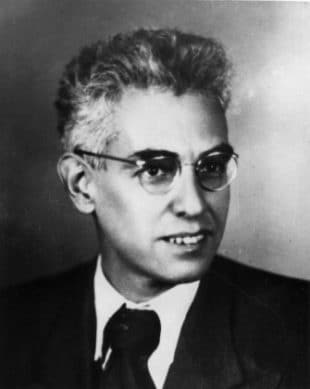
Can you remember the name of your first-grade teacher? Certainly, the information was stored at one time ― the teacher was a central figure in your life for nearly a year. Is it still somewhere in your long-term memory if you can’t recall the name?
Forgetting is the loss or change in information previously stored in short- or long-term memory. Long-term memory is the memory process that takes information from the short-term memory store and creates long-lasting memories. These memories can be from an hour ago or several decades ago.
Do we really forget?
Many psychologists propose that long-term memory has an almost limitless capacity, and though we forget, it is not because the memory itself is gone. Instead, we just can no longer retrieve it.
The work of Wilder Penfield, a brain surgeon who used electrical stimulation to learn more about the function of parts of the human cortex, led scientists to suspect that some memories might be permanent and forgetting simply a failure in retrieval. Penfield’s primary motivation was to perform needed brain surgery, and he was electrically stimulating the patient’s brain to ensure the operation would not destroy critical brain tissue.
Sometimes Penfield would stimulate the patient in the frontal or temporal lobe, and the current would cause the patient to remember some event in vivid detail. During one operation, for example, the patient appeared to relive a long-forgotten childhood experience. During another, the patient heard Christmas songs in her church at home in Holland.
Theories of forgetting
There are four fundamental theories about how we forget. It is most likely that all of these theories are partially correct:
- Memory deterioration — memories fade naturally over time.
- Memory distortion — memories are altered, distorted, or modified over time.
- Retroactive inhibition — new memories interfere with/replace old memories.
- Repression — memories are unconsciously blocked from our awareness.
.
Psychology professor Peter Vishton, from the College of William and Mary, identified four reasons why we forget (Brooks, 2018):
- Failure to encode (lack of understanding)
- Problem: The person doesn’t process and understand what they are being taught or learning.
- Solution: Immediately check for understanding and provide clarification.
- Decay (quickly forgetting)
- Problem: The person quickly forgets what they are being taught or learning.
- Solution: Employ repetition and recall.
- Retroactive and proactive interference (distractions)
- Problem: The person is distracted by something they experienced immediately before or after being taught a concept.
- Solution: Identify a specific learning objective. Try to avoid exposing the student to significant distractions immediately before or after presenting the targeted concept.
- Timing of the forgetting process (insufficient reviewing of material)
- Problem: The person forgets what they have been taught or learned after a day or two.
- Solution: Strategically distribute studying over ever-increasing periods of time.
Other reasons for forgetting
Several other factors can play a role in why people forget. Other common causes of forgetting include:
- Alcohol: Drinking alcohol can hurt memory.
- Medications: Some medications can affect memory, including antidepressants, sedatives, and cold and allergy medications.
- Depression: Common symptoms of depression include low mood and loss of interest, but difficulty concentrating and forgetfulness can also occur with depressive disorders.
- Stress: Excessive stress, both acute and chronic, can also play a role in causing forgetfulness.
- Lack of sleep: Sleep plays a vital role in memory consolidation, so a lack of quality sleep can have a negative impact on memory.
Imagine never forgetting
Forgetting is both necessary and valuable. Imagine remembering every single second of every single day of your life. It would be tough to keep all the information organized and focus on one thing at a time. There is just too much information to be remembered.
There was a man who did not forget. Solomon Shereshevsky was a Russian journalist with a perfect memory. He never took notes during his interviews, but his articles were detailed and accurate. He told his editor that he didn’t need to take notes because he never forgot anything. So his editor sent him to Aleksander Luria at a local university for testing.

Over the course of the next 30 years, Luria would carry out an extensive series of experiments examining the journalist who would become his most famous case.
During the research trials, Shereshevsky could recall extensive lists of words, numbers, and even nonsense syllables without mistakes and with only occasional hesitation. He could also report the numbers or letters in reverse order. Not only this, he remembered them years afterward, as well as the clothes Luria had worn on the day he had first learned them!
Even events from early childhood could be recalled, including things that happened when he was still in his crib. There also appeared to be no limit to his digit span, as opposed to the seven to nine items that most humans can manage.
The ‘gift’ wasn’t a gift
Unfortunately, Shereshevsky’s gift was a serious handicap. He was unable to block unwanted memories. Also, he had a terrible memory for faces because he memorized them so exactly. Howvere, people’s faces change with time, lighting, mood, and expression. As a result, Shereshevsky had difficulty recognizing faces because they looked so different from those he had memorized in the past.
Shereshevsky had trouble understanding abstract concepts or figurative language. Luria wrote about him:
He was not able to read poetry or fiction easily, as each word or phrase would blossom into an intense visualization that might be contradicted by the next one… Shereshevsky’s pathological memory interfered with his ability to hold a regular job, enjoy literature, or even seemingly to think in the abstract without being distracted by sensory association.
Shereshevsky gave up his journalism career and became a professional mnemonist giving regular shows to paying audiences. Despite his success, he never had great satisfaction as a performer and gave it up after a while. He then became a taxi driver in Moscow, but his life faded into obscurity afterward. Aside from a possible death date in 1958, there seems to be little else available.

